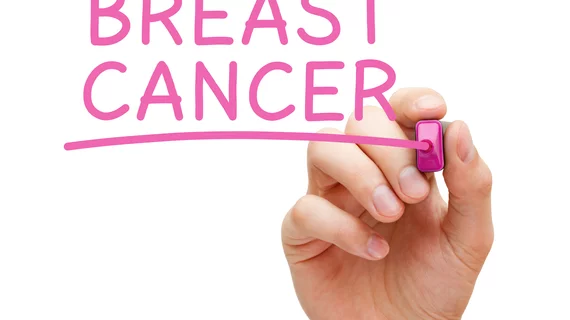RSNA 2018: Cryoablation shows promise for treating low-risk breast cancers
Cryoablation may be an effective treatment method for women with low-risk breast cancers, according to research presented at RSNA 2018 in Chicago.
Led by radiologist Kenneth R. Tomkovich, MD, of Princeton Radiology and CentraState Medical Center in Freehold, New Jersey, researchers have been studying cryoablation as the primary method of breast cancer treatment without surgical lumpectomy at 18 centers across the country since 2014. Cryoablation, which has previously been used to treat lung and kidney cancers, is not yet an established treatment for breast cancer.
"If it's proven that cryoablation works, then some women might be more inclined to opt for it over surgery,” Tomkovich said in a prepared statement.
The team performed cryoablation on women aged 60 and over with low-risk breast cancer. The patients are then tracked to determine recurrence rates at six months, 12 months and then annually for five years.
At present, the researchers have three-year follow-up data for 20 patients and two-year follow-up data on more than 75 patients.
Calling the results "very promising," the researchers found that cryoablation was performed successfully in all patients. Among the 180 patients, only one patient experienced a recurrence. The procedure has a 99 percent success rate so far.
"Lumpectomy is 90 to 95 percent effective at removing cancer," Tomkovich said in the same statement. "We were going for something close to that, but our preliminary results have been even better. We're getting the same results at 18 centers around the country."
Final results of the study will be published when five-year follow-up data is available for all the women who were treated.

